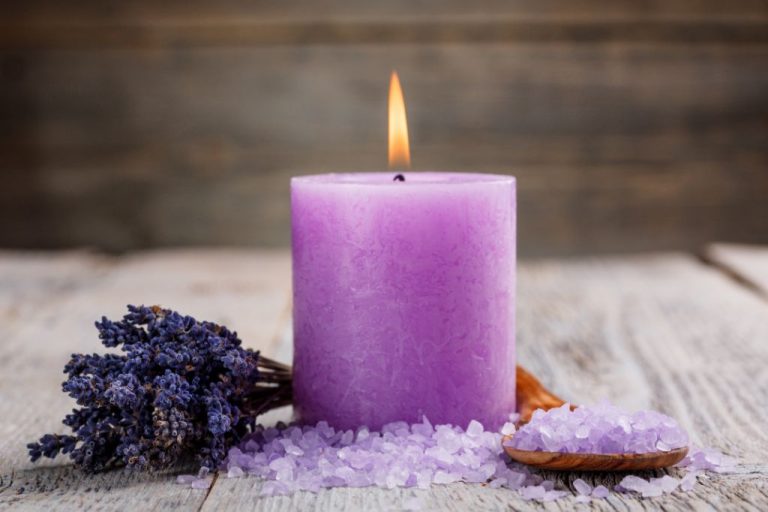Can I Buy Clove Oil From Supermarket?
What is Clove Oil?
Clove oil is an essential oil extracted from the cloves of the clove plant, also known as Syzygium aromaticum. Cloves are popularly used as a spice in food, but clove oil is valued for its medicinal properties.
Clove oil originates from the Molucca islands of Indonesia but is now cultivated in other tropical regions as well. It has a long history of traditional use in both cooking and folk medicine.
The main active ingredient in clove oil is eugenol, which makes up 70-90% of the oil. Eugenol provides antiseptic, anti-inflammatory, and analgesic effects. Other active components include beta-caryophyllene, acetyl eugenol, and vanillin.
Benefits and Uses of Clove Oil
Clove oil has been used for centuries in traditional medicine and aromatherapy. Some of the main benefits and uses of clove oil include:
Pain Relief
Clove oil contains a compound called eugenol that has natural analgesic and anti-inflammatory properties. When applied topically, clove oil can help relieve pain from sore muscles, joints, headaches, and other conditions. It activates receptors in the brain that block pain signals.
Antimicrobial Properties
Research shows that clove oil has powerful antibacterial, antiviral, and antifungal properties. This is due to compounds like eugenol, carvacrol, thymol, and cinnamaldehyde in clove oil. It can help fight infections and protect against pathogens when used aromatically or applied topically.
Aromatherapy Uses
Clove oil is commonly used in aromatherapy for its therapeutic benefits. Its sweet, spicy aroma can help relieve stress, boost energy levels, and improve mood. Clove oil blends well with citrus, cinnamon, rosemary, and peppermint oils.
Is Clove Oil Safe?
When used as directed, clove oil is generally considered safe and effective. However, there are some potential side effects and safety considerations to be aware of.
Side Effects: Clove oil can cause allergic skin reactions in some people. It may also irritate the skin, eyes, and mucous membranes, especially if used undiluted. Other side effects may include headache, dizziness, nausea, vomiting, and diarrhea if ingested in large amounts.
Recommended Dosage: It’s important not to exceed the recommended dosage for clove oil. For adults, the generally recommended dosages are:
- Topical use (diluted): 1-5% solution, applied up to 3 times daily
- Oral use: 0.5-1 mL (about 1/4 teaspoon) per day, diluted in water/juice
Contraindications: Clove oil should be avoided by people with bleeding disorders, stomach ulcers, or kidney disease. It should also not be used by pregnant women, breastfeeding mothers, or young children without medical supervision.
Clove oil may interact with blood thinning medications, so it’s important to consult your doctor before using it if you take any prescription medications.
Where to Buy Clove Oil
Clove oil is widely available from a variety of retailers, both in-store and online. Here are some of the most common places to purchase clove oil:
Health Food Stores
Many health food stores and co-ops sell essential oils including clove oil. You can usually find clove oil in the aromatherapy or herbal supplement section of health food stores. Stores like Whole Foods, Sprouts, and Trader Joe’s carry a selection of essential oils.
Online Retailers
There are numerous online retailers that specialize in essential oils and aromatherapy products. Large retailers like Amazon and eBay sell many brands of clove oil. There are also smaller specialty shops that offer high-quality essential oils for purchase online.
Supermarkets
Some supermarkets sell essential oils like clove oil, usually in small vials. The selection is often limited compared to health food stores and online shops. But grocers like Walmart, Target, and local supermarkets may carry a few basic essential oils like clove, peppermint, and tea tree oil.
Clove Oil in Supermarkets
Clove oil can be found in the health and wellness sections of most major supermarket chains. Here’s a quick overview of where to find it and what to expect:
Aisle Location: Check the supplement, vitamin, or herbal remedy aisles. Clove oil is usually shelved alongside other essential oils and natural health products.
Major Chains: Stores like Walmart, Target, Kroger, Safeway, Whole Foods, Sprouts, and Trader Joe’s typically carry clove bud oil. Regional chains may offer it too.
Brands: Look for clove oil from reputable brands like NOW Foods, Nature’s Bounty, Puritan’s Pride, and Natrol. Grocery store brands like Whole Foods 365 also sell clove oil.
Prices: Expect to pay $6 to $12 for a small 0.5 oz or 1 oz bottle. Bulk sizes around 2 oz may run from $10 to $20. Compare unit prices to find the best deals.
While selection and availability varies by location, most supermarket chains will stock at least one or two reliable clove oil options. Buying clove oil from your grocery store is often cheaper and more convenient than purchasing online or from a health store.
How to Choose Clove Oil
When buying clove oil, it’s important to choose a high-quality pure oil and avoid diluted versions. Here are some tips:
Pure vs. Diluted: Look for 100% pure essential clove oil, not an already diluted version. Diluted oils are cut with carrier oils or alcohol and won’t be as potent.
Organic vs. Conventional: Organic oils are free of pesticides and other chemicals. They tend to be more pure. Conventional oils may be cheaper but can have contaminants.
Steam Distilled: Make sure the oil is steam distilled, not extracted using harsh solvents. Steam distillation preserves the therapeutic compounds of the cloves.
The label should indicate the oil is 100% pure clove oil and steam distilled. Organic and undiluted oils from reputable brands will offer the true potential of clove.
How to Store Clove Oil
Proper storage is important to maintain the potency and shelf life of clove oil. Here are some tips on how to best store clove oil:
Shelf Life: Clove oil can last 1-2 years when stored properly. Keep an eye on the expiration date if your oil is packaged. If buying oils in bulk, write the purchase date on the bottle.
Light Sensitivity: Clove oil can oxidize when exposed to light, which reduces potency. Store clove oil in dark amber or blue colored bottles. If your bottle is clear, keep it in a cool, dark place like a pantry or cupboard.
Temperature Control: Store clove oil at room temperature away from heat and sunlight. Avoid places like windowsills or top of refrigerators as temperature fluctuations can affect quality.
Proper Containers: Glass bottles are best for storing essential oils. Avoid plastic containers which may leach chemicals. Dark glass helps block light. Make sure bottles have tight-fitting lids.
Following these precautions will help maintain the therapeutic benefits of clove oil for longer.
Using Clove Oil Safely
When using clove oil, it’s important to dilute it properly and do a skin patch test before wider application. Here are some tips for using clove oil safely:
Dilution Guidelines: Clove oil is very concentrated and can cause skin irritation if used undiluted. It’s recommended to dilute clove oil with a carrier oil like coconut, olive, or jojoba oil before applying to skin. As a general guideline, clove oil should be diluted to 1-3% for adult skin. This means 1-3 drops of clove oil per teaspoon of carrier oil.
Skin Patch Test: Before using clove oil, do a skin patch test to check for allergic reaction or sensitivity. Apply a small amount of diluted clove oil to your inner arm and wait 24-48 hours to see if any irritation occurs.
Interactions: Clove oil can interact with certain medications, especially blood thinners, anesthesia, and diabetes drugs. Consult your doctor before using clove oil if you take any medications or have a medical condition. Avoid use during pregnancy except under medical supervision.
Always read and follow usage instructions on the clove oil bottle. Never ingest clove oil except when specifically advised by a doctor. Use clove oil sparingly and watch for any skin irritation during use. Diluting properly and doing a patch test can help prevent adverse reactions.
DIY Clove Oil Uses
Clove oil can be used in a variety of DIY projects and home remedies. Here are some popular uses for clove oil around the house:
Toothache Remedy
Clove oil has natural pain-relieving properties, making it an effective temporary remedy for toothaches. Soak a cotton ball in clove oil and gently apply to the affected area of the mouth. The oil can help numb pain and provide relief.
Air Freshener
Add a few drops of clove oil to a diffuser or spray bottle filled with water to naturally scent the air in your home. You can also simmer clove oil in water on the stove to fill your home with the warm, comforting aroma.
Natural Insect Repellent
Mix a few drops of clove oil with water in a spray bottle and use it as a natural bug spray. The strong scent of clove oil can help repel insects like mosquitoes. Spray around doors, windows, and other entry points.
Other FAQs
Many people also have questions about substitutions, comparisons, and growing cloves. Here are some frequently asked questions:
What are substitutes for clove oil?
Some possible substitutes for clove oil include:
- Cinnamon oil – Has a similar warming effect to clove. Use about half the amount of cinnamon oil as you would clove oil.
- Eucalyptus oil – Has analgesic and anti-inflammatory properties similar to clove. Use the same amount as you would clove oil.
- Peppermint oil – Provides a cooling sensation instead of warmth, but has a similar invigorating effect. Use the same amount as clove oil.
- Tea tree oil – Has cleansing properties that make it a good substitute in home care products. Use the same amount as clove oil.
How does clove oil compare to clove extract?
Clove oil is extracted and distilled from cloves, concentrating the active compounds like eugenol. Clove extract is made by infusing cloves in a solvent like glycerin or alcohol, producing a milder product. Clove oil is much more potent, so only small amounts are needed.
Can I grow cloves at home?
It is possible to grow a clove tree at home, but it can be challenging. Cloves require tropical temperatures, high humidity, and rich soil to thrive. It takes 10-15 years for trees to start producing flower buds that become cloves. Home growers may have better luck starting with a small clove tree or with container gardening.






